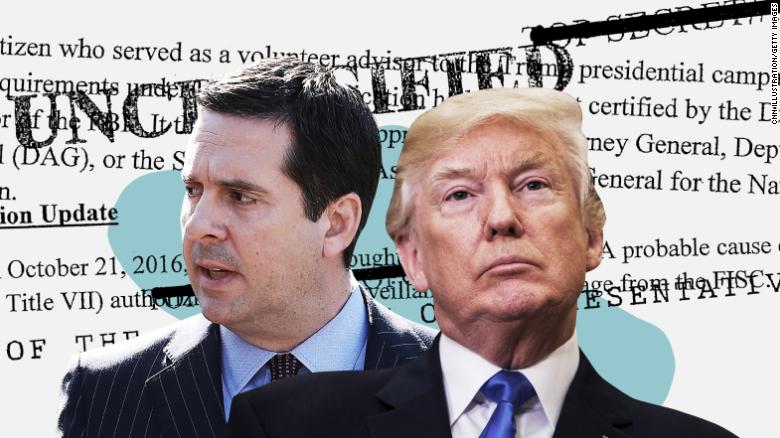Washington (CNN)New developments are surfacing in special counsel Robert Mueller's probe nearly every day, but new poll numbers are showing Republican voters aren't all that concerned.
Weekly Gallup numbers released Monday show President Donald Trump's approval rating among Republicans at a sky-high 90% ŌĆö his best number among those in his own party since Inauguration Day.
A new Quinnipiac University poll released on Tuesday shows a more nuanced look at how GOP voters view the Russia investigation ŌĆö where they are unanimously skeptical and where their confidence has eroded over time.
Here are five key numbers on how Republicans are sticking by the man in the Oval Office.
1. Most GOP voters say FBI is biased against Trump
A majority of Republican voters, 58%, say the FBI is biased against Trump, according to the new Quinnipiac poll, though voters overall disagree. The new numbers come days after House Intelligence Committee Chairman Devin Nunes released a memo alleging that the FBI abused its surveillance authority in obtaining a warrant for then-Trump campaign foreign policy adviser Carter Page. Most Republican voters, 53%, also disapprove of how the FBI is handling its job ŌĆö though voters overall disagree on this point, too.
2. A plurality gives Trump a pass on asking DOJ officials for loyalty
Is it appropriate for a president to ask officials from the Department of Justice for loyalty? Two-thirds of American voters overall give a resounding "no" to that question ŌĆö but Republican voters are roughly evenly split. In the new Quinnipiac poll, 46% say it's appropriate vs. 44% who say it's not appropriate.
Former FBI Director James Comey said Trump asked him to pledge his loyalty, Trump recently asked Deputy Attorney General Rod Rosenstein if he was "on my team," and Trump also asked former deputy FBI Director Andrew McCabe who he voted for in the 2016 presidential campaign.
3. An overwhelming majority says Trump hasn't tried to derail anything
A majority of American voters, 53%, says Trump tried to derail or obstruct the investigation into Russian meddling and potential coordination with the Trump campaign. But ask GOP voters, and it's the polar opposite. A whopping 83% of Republicans voters ŌĆö nearly the number of party faithful who tend to approve of Trump's job performance ŌĆö say that Trump hasn't tried to derail anything. A list of topics that Mueller has provided to Trump's lawyers suggest any interview between the two could focus substantially on obstruction of justice issues.
4. More Republicans say Mueller has been unfair than say he's been fair
A plurality of Republican voters, 46%, say that Mueller has not been fair in his investigation into Russian meddling in the 2016 presidential election. Roughly a third, 35%, say he's been fair. That stands in contrast to the majority of Americans, 56%, who say that Mueller has been fair during his probe so far. Mueller's investigation has charged four people, including former Trump national security adviser Michael Flynn, who pleaded guilty in December to lying to the FBI about conversations with Russia's ambassador.
5. Most GOP voters think the Russia probe is a witch hunt
A broad 77% of GOP voters say that the investigation into Trump associates and Russian meddling is a "witch hunt," according to Tuesday's new survey from Quinnipiac. Overall, voters say the probe is legitimate by an 8-point margin. Trump has repeatedly dismissed the investigation as a witch hunt and attacked top investigators in his own Justice Department.
This Quinnipiac University poll was conducted from February 2-5 among 1,333 registered voters. The margin for sampling error is ┬▒3.3% pts. among all voters; it is larger for subgroups. The respondents were 24% Republican, 29% Democratic and 40% independent.





